- How is the stability of the aqueous solution of the water-soluble grade?
-
Since epoxy groups react with water, hydrolysis occurs gradually.
When using it as a curing agent for waterborne resins, we recommend a two-component system.
Please refer to here the epoxy degradation rate in aqueous solution.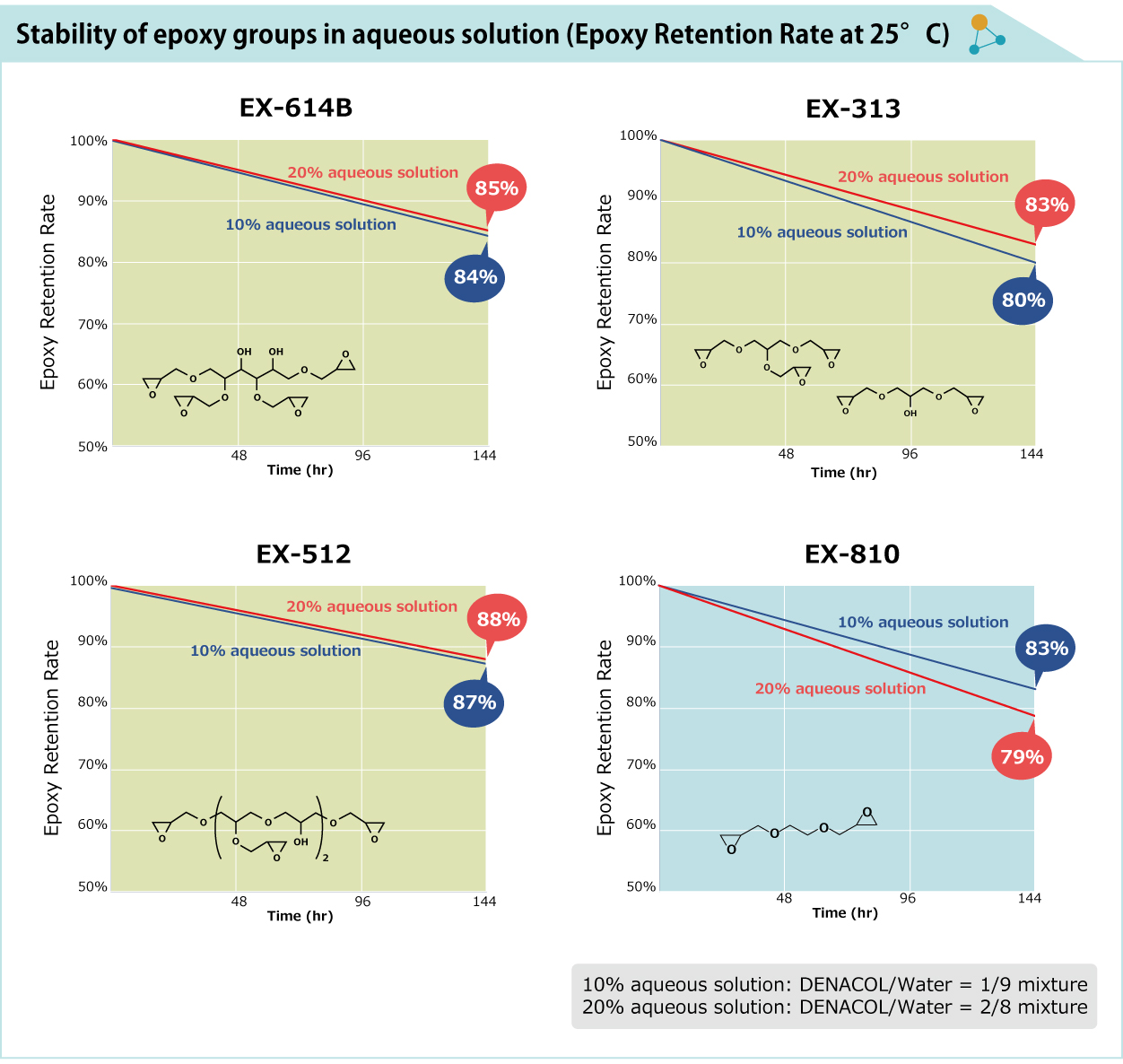
- What is the solubility of the water-soluble grade in organic solvents?
-
Soluble in water as well as many organic solvents, so it can be used in both water- and solvent-based systems.
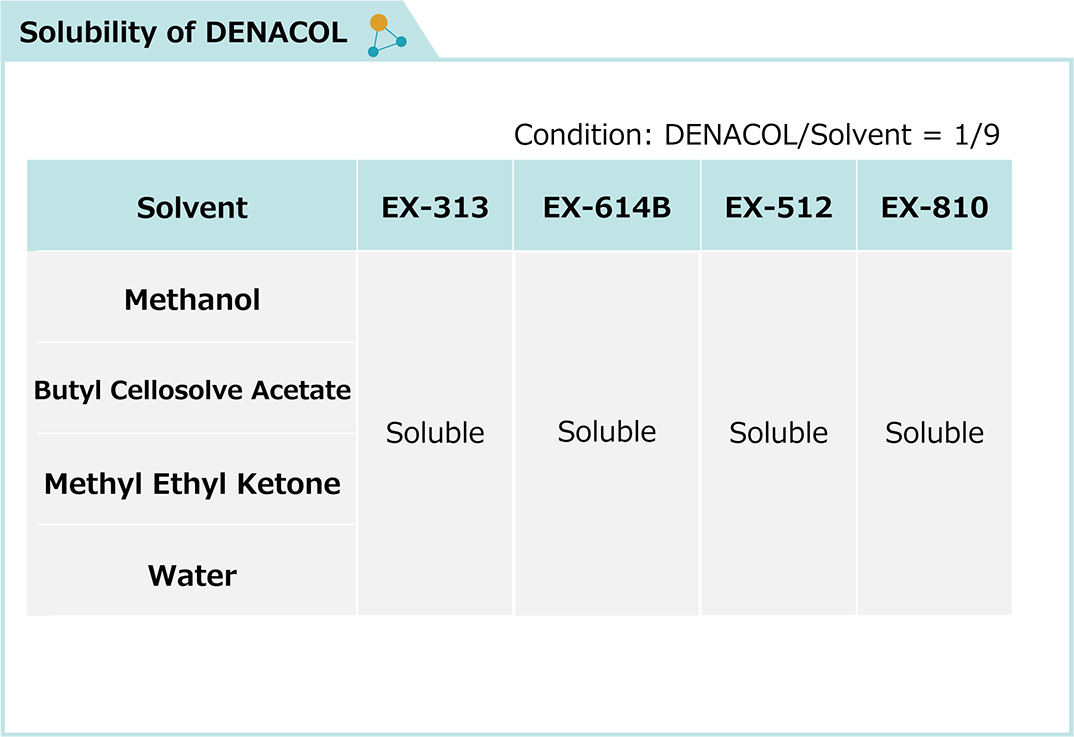
- What is the method for calculating solubility in water?
-
The solubility rate of DENACOL when mixed with water in a 1:9 ratio.
- How is the stability of the product?
-
Most grades can be stored at room temperature.
- Is it a single substance?
-
Except for some grades, products in the DENACOL series are mixtures containing by-products generated through reactions.
Since the by-products also contain epoxy groups, they have reactivity.
Please refer to this for examples of the by-products.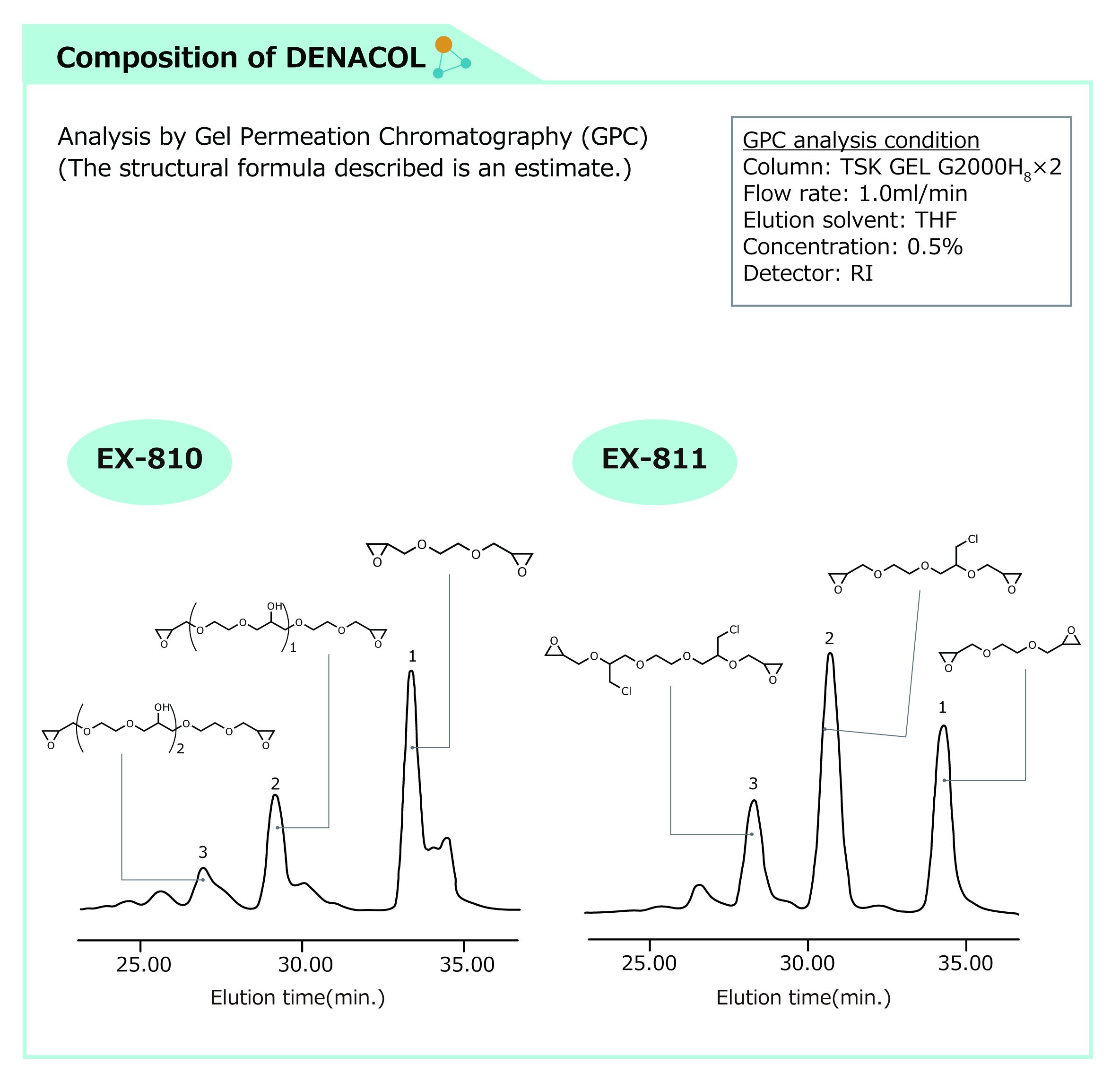
- There are several grades with the same backbone, such as the EX-300 series, EX-600 series, etc. What are the differences between them?
-
Although the same backbone material is used, differences in manufacturing processes allow for control over properties such as solubility in water and viscosity.
- What kind of compounds does it react with? Also, what are the optimal reaction conditions?
-
It reacts with functional groups that have active hydrogen. For example, it reacts with amine groups at nearly room temperature, while a temperature above 100°C is required for reaction with carboxyl groups. The reactivity varies depending on the functional group.
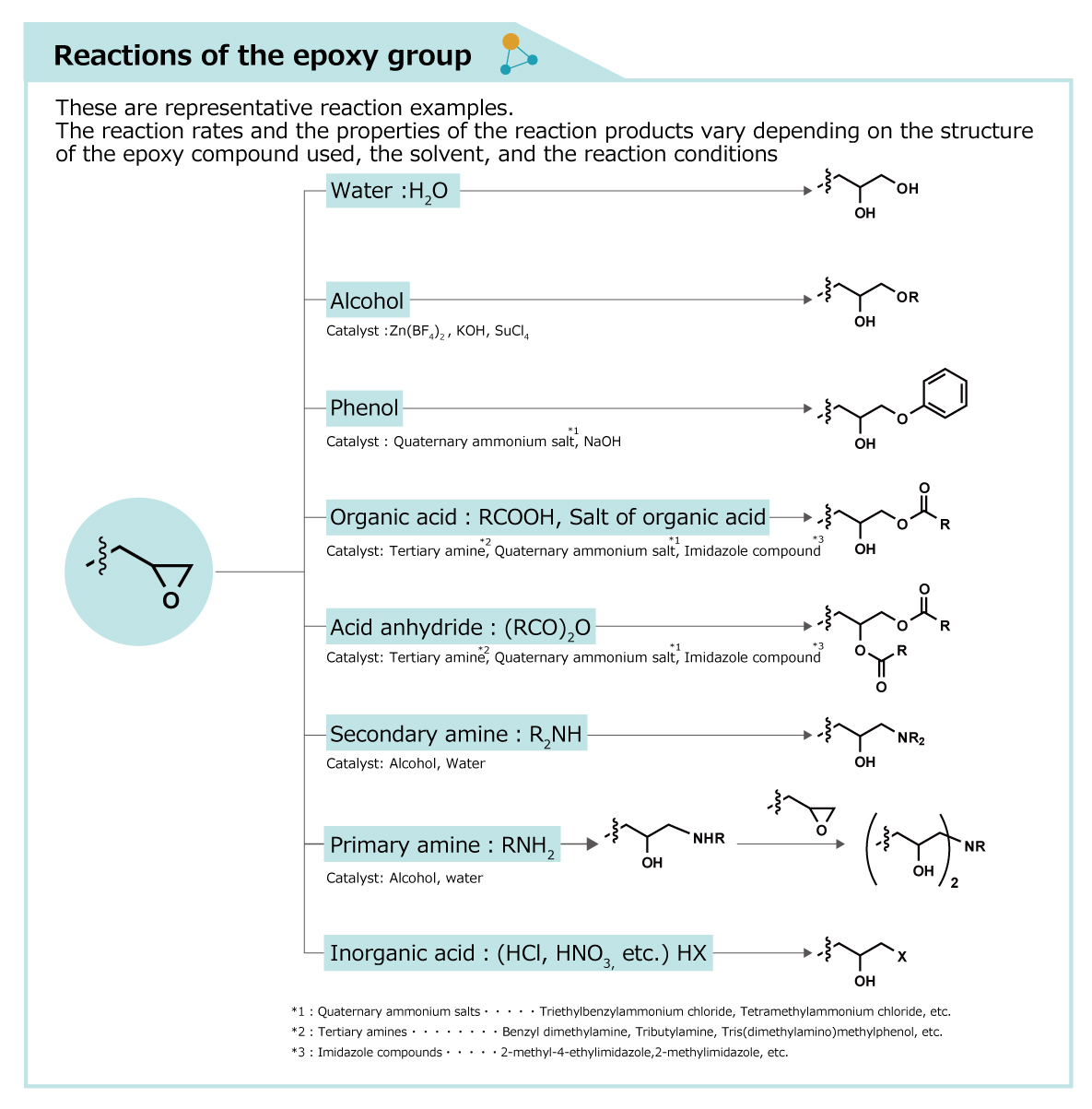
- Many products contain a significant amount of chlorine. What form does it exist in?
-
"It originates from the raw material epichlorohydrin, and most of the chlorine exists as bound chlorine, with some also present as hydrolyzable chlorine or chloride ions.
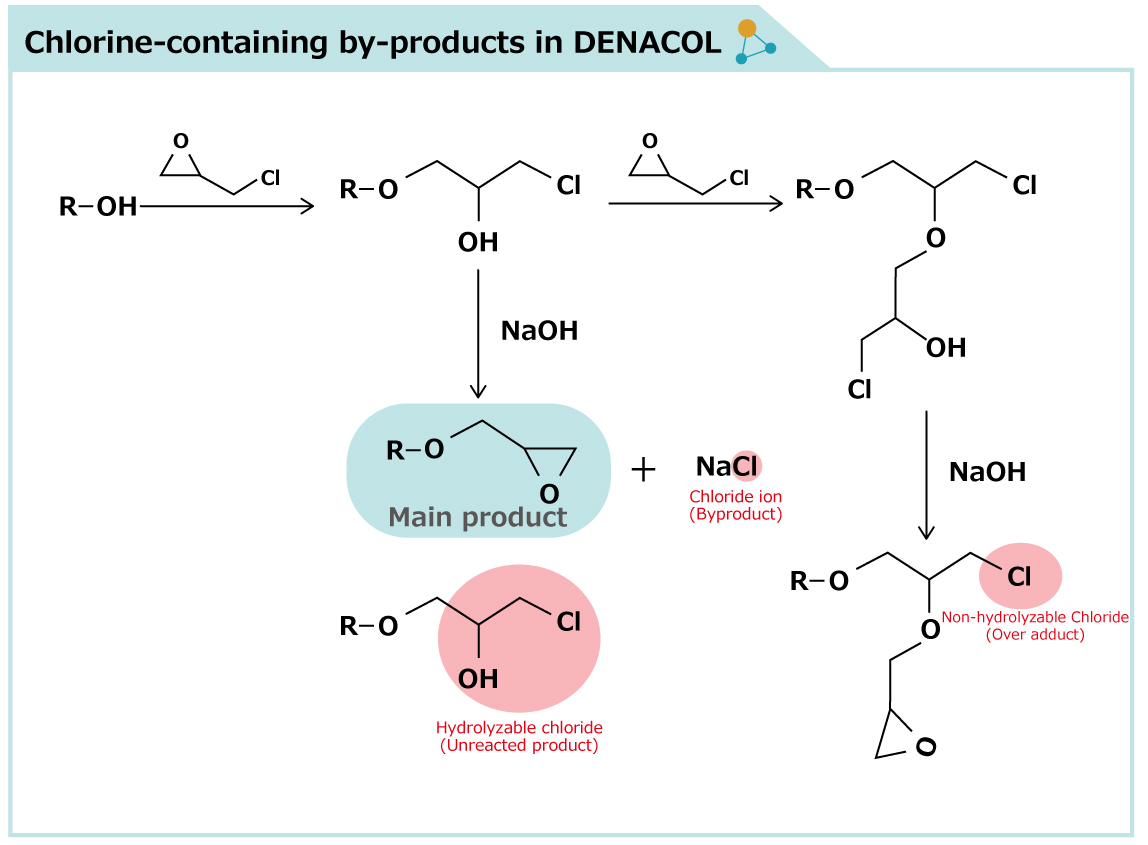
- Is there a list for 'Viscosity,' 'Flexibility,' 'Heat resistance,' and 'Chlorine content'?
-
We have summarized each item in Figures.
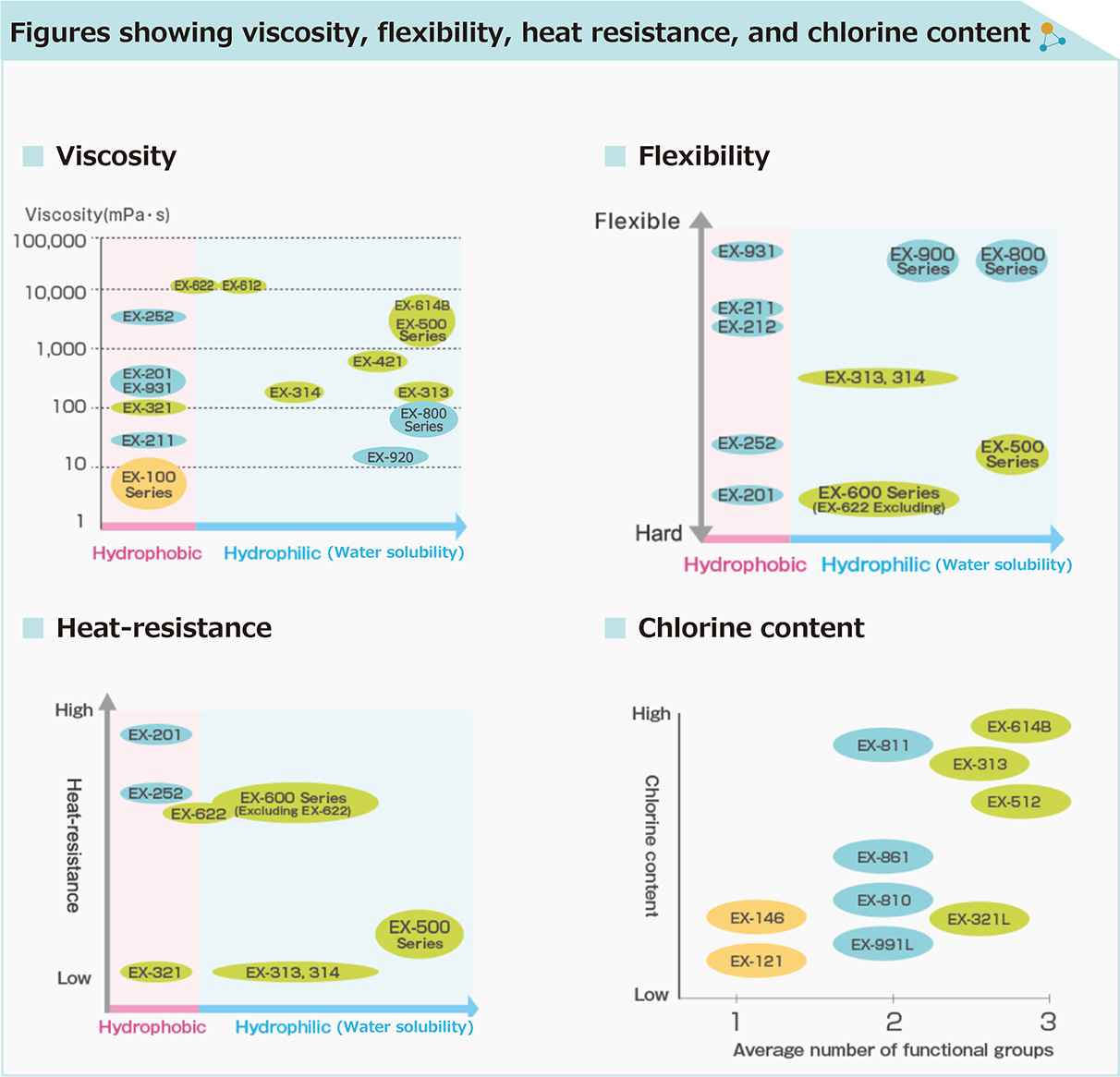
- What are the special precautions for handling?
-
There are grades with high irritancy, so please refer to the SDS (Safety Data Sheet) and use appropriate protective equipment when handling.
- What is the status of Chemical Substances Control Law registration and international registration status?
-
The Domestic Chemical Substances Control Law (Japan) registration has been completed for all grades. For information regarding international registration status, please inquire.
※Each property and data introduced in this page, it is a representative value, NOT a guaranteed value. Also, please note that the specifications of the products are subject to change without notice.

